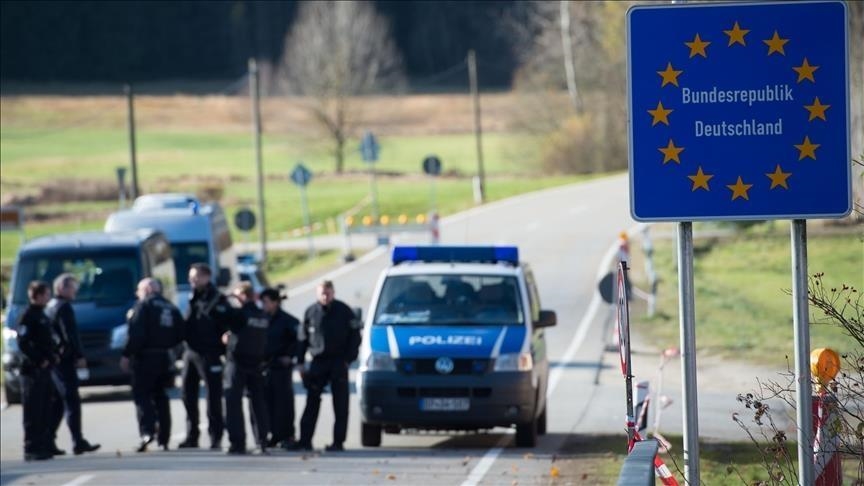BERLIN
Germany’s decision to prolong internal border checks within the EU has triggered debate over their legality, effectiveness, and underlying motives. While Chancellor Friedrich Merz’s government argues the move is necessary to curb irregular migration and enhance national security, experts say the policy is more about domestic politics than solving Europe’s migration challenges.
“First of all, it’s about domestic politics, to send a signal that the new German government is doing things differently,” Raphael Bossong of the German Institute for International and Security Affairs (SWP) told Anadolu. “Maybe it’s also a message to the world, other countries, and potential migrants that Germany is not welcoming anymore.”
Bossong emphasized that Merz’s conservative-led coalition is focused on signaling strength to voters rather than crafting measures that will have meaningful operational impact. Merz campaigned on tightening migration controls amid the growing popularity of far-right parties that have long weaponized migration concerns. After taking office in May, he swiftly ordered comprehensive border checks, and this week Interior Minister Alexander Dobrindt confirmed the controls will be extended beyond their initial September deadline.
Bossong, however, questioned the effectiveness of the policy. The controls, he explained, mostly consist of random checks on major highways and crossing points, leaving vast stretches of forested border terrain open to smugglers.
According to him, the measures raise legal questions too. “In fact, there has been a long debate in the German coalition about these internal border controls, which are actually not legal under EU law,” he said.
The new practice of returning asylum seekers at the border, he added, is also a clear violation of EU regulations.
“It is just a question of who has the courage to sue Germany for that? Some asylum seekers have already done that, but the European Commission and other EU member states are hesitant. But this doesn’t mean that they are just okay,” he noted.
Government insists measures are temporary
Berlin has dismissed criticism, insisting the restrictions are only in place until the EU fully implements its new migration and asylum pact next year and strengthens external border security.
Germany hosts some 3.5 million refugees, mainly from Ukraine, Syria, and Afghanistan. Between May and August, German authorities turned away more than 10,000 irregular migrants, including 550 asylum seekers, according to official figures. Conservatives argue that asylum seekers must register in the first EU state they enter – such as Greece or Italy – in line with EU rules. The bloc’s migration pact envisions distributing accepted asylum seekers across member states.
Bossong said that while the German government hopes the EU’s new Pact on Migration and Asylum will take effect in June 2026, there are doubts over its timely implementation due to ongoing disagreements between member states.
“I don’t think all EU member states will be ready next year to implement the system and … a stringent Dublin system of distributing accepted asylum seekers in the EU,” he said.
Instead, he predicted Schengen will evolve into a more restrictive system: “I don’t think this is the death of Schengen or the end of Schengen. It’s a transformation, and certainly, I do not expect that we will in the near future come back to a fully open Schengen zone again. It’s rather a question of what kind of control measures will become normalized, irrespective of what is legal or not.”
Rising tensions inside EU
Germany’s tougher stance has already stirred friction with Poland, which retaliated by imposing its own border checks. Polish leaders have accused Berlin of pushing migrants across the frontier.
Other EU countries – including Italy, Slovenia, Austria, Denmark, and the Netherlands – have also reintroduced internal border controls, citing migration, public order, or security threats. EU rules allow such steps only in exceptional circumstances, and the European Commission has stressed they must be temporary and a “last resort.”
Bossong warned that widespread bending of the rules undermines trust among member states. “There is this kind of spread of legitimization of not respecting EU law, claiming we have an emergency, and every country interprets emergency in a different way,” he said.
“Beyond Schengen, we have a decline in respect for EU rules. Then domestic politics become more important than ever, and this makes reliable cooperation very, very difficult.”
According to the expert, true solutions lie not in random checks but in tackling the underlying causes of displacement. “We should try our best to stabilize Ukraine. With regard to Syria, we have little outside influence, but we need to work with the regional powers, with Türkiye,” he said.
“Fewer people are coming now, and some have begun to return, but it’s still hanging in the balance. We don’t know where things are going.”
